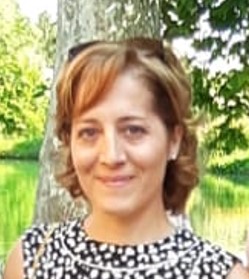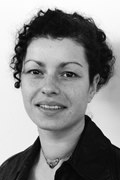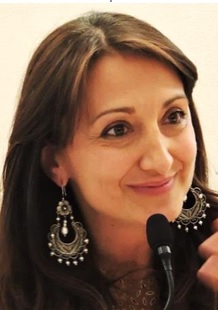Studying at the University of Verona
Here you can find information on the organisational aspects of the Programme, lecture timetables, learning activities and useful contact details for your time at the University, from enrolment to graduation.
Academic calendar
The academic calendar shows the deadlines and scheduled events that are relevant to students, teaching and technical-administrative staff of the University. Public holidays and University closures are also indicated. The academic year normally begins on 1 October each year and ends on 30 September of the following year.
Course calendar
The Academic Calendar sets out the degree programme lecture and exam timetables, as well as the relevant university closure dates..
| Period | From | To |
|---|---|---|
| Sem. 1A | Sep 21, 2020 | Oct 31, 2020 |
| Sem. 1B | Nov 9, 2020 | Jan 9, 2021 |
| Sem. 2A | Feb 15, 2021 | Apr 1, 2021 |
| Sem. 2B | Apr 14, 2021 | May 29, 2021 |
| Session | From | To |
|---|---|---|
| Sessione d'esame invernale | Jan 14, 2021 | Feb 13, 2021 |
| Sessione d'esame estiva | Jun 7, 2021 | Jul 24, 2021 |
| Sessione d'esame autunnale | Aug 23, 2021 | Sep 18, 2021 |
| Session | From | To |
|---|---|---|
| Sessione di laurea estiva | Jul 5, 2021 | Jul 10, 2021 |
| Sessione di laurea autunnale | Nov 8, 2021 | Nov 13, 2021 |
| Sessione di laurea invernale | Mar 28, 2022 | Apr 1, 2022 |
| Period | From | To |
|---|---|---|
| Festa di Ognissanti | Nov 1, 2020 | Nov 1, 2020 |
| Festa dell'Immacolata | Dec 8, 2020 | Dec 8, 2020 |
| Vacanze di Natale | Dec 24, 2020 | Jan 6, 2021 |
| Vacanze di Pasqua | Apr 2, 2021 | Apr 6, 2021 |
| Festa della liberazione | Apr 25, 2021 | Apr 25, 2021 |
| Festa del lavoro | May 1, 2021 | May 1, 2021 |
| Festa del Santo Patrono | May 21, 2021 | May 21, 2021 |
| Festa della Repubblica | Jun 2, 2021 | Jun 2, 2021 |
| Vacanze estive | Aug 9, 2021 | Aug 15, 2021 |
Exam calendar
Exam dates and rounds are managed by the relevant Humanistic Studies Teaching and Student Services Unit.
To view all the exam sessions available, please use the Exam dashboard on ESSE3.
If you forgot your login details or have problems logging in, please contact the relevant IT HelpDesk, or check the login details recovery web page.
Should you have any doubts or questions, please check the Enrollment FAQs
Academic staff
 giorgia.decarli@univr.it
giorgia.decarli@univr.it
 licia.landi@univr.it
licia.landi@univr.it
 domenico.lipari@univr.it; domenico.lipari@uniroma1.it
domenico.lipari@univr.it; domenico.lipari@uniroma1.it
 angeloluigi.sangalli@univr.it
angeloluigi.sangalli@univr.it
Study Plan
The Study Plan includes all modules, teaching and learning activities that each student will need to undertake during their time at the University.
Please select your Study Plan based on your enrollment year.
1° Year
| Modules | Credits | TAF | SSD |
|---|
2° Year activated in the A.Y. 2021/2022
| Modules | Credits | TAF | SSD |
|---|
1 module between the following1 module between the following3° Year activated in the A.Y. 2022/2023
| Modules | Credits | TAF | SSD |
|---|
1 module among the following1 module between the following| Modules | Credits | TAF | SSD |
|---|
| Modules | Credits | TAF | SSD |
|---|
1 module between the following1 module between the following| Modules | Credits | TAF | SSD |
|---|
1 module among the following1 module between the following| Modules | Credits | TAF | SSD |
|---|
Legend | Type of training activity (TTA)
TAF (Type of Educational Activity) All courses and activities are classified into different types of educational activities, indicated by a letter.
Social Pedagogy (2020/2021)
Teaching code
4S00760
Teacher
Coordinator
Credits
9
Language
Italian
Scientific Disciplinary Sector (SSD)
M-PED/01 - PEDAGOGY, THEORIES OF EDUCATION AND SOCIAL EDUCATION
Period
Sem. 2A, Sem. 2B
Learning outcomes
General aims: 1. knowing and understanding the pedagogical theories that can explain the fundamental processes for individuals to function in, and adapt to, their material and social environments; 2. knowing and understanding the pedagogical theories subsumed to learning processes and techniques for the training and development of individuals and of different working communities, and which take into account also to the processes of social and cultural inclusion; 3. applying pedagogical methodologies and techniques to the analysis of learning processes in vocational training and in the development of communities of practices; 4. choosing among, and applying, teaching methods and strategies that are suitable to response to personal and social needs, in diverse and complex training contexts. 5. Using legal, sociological, ethical and anthropological knowledge to the reading and understanding of diversity and migratory phenomena in order to favor and support processes of social and cultural inclusion. SPECIFIC TRAINING OBJECTIVES The course aims to provide the necessary theoretical and practical bases to analyse the conditions of social marginality and deviance and to assess the potentials of pedagogical interventions, both preventive and rehabilitative, in contexts of formal, non-formal and informal learning. At the end of the course students will be able to: know and understand the main factors affecting marginality and deviance of individuals and groups; contribute to the design of pedagogical interventions or to their improvement through the exercise of autonomous judgement and with appropriate communication styles.
Program
The curriculum is structured in 4 modules; Each module covers preparatory topics for the following modules:
Module 1: Conceptual bases
• What is social pedagogy?
• Historical considerations on the development of social pedagogy
• Marginality and deviance
• Community and territory
Module 2: Academic Writing
• Introduction to the argumentative text
• Describing, analysing, and arguing
• Search, validity and appropriateness of the sources of information
Module 3: Some 20th century educators
• The teacher Alberto Manzi (1927-1997)
• The philosopher of education Piero Bertolini (1931-2006)
• The educator Ettore Gelpi (1933-2002)
Module 4: The contexts for social pedagogical intervention
• Formal learning contexts (eg. school)
• Non-formal learning contexts (eg. youth centres)
• Informal learning contexts (eg. media)
• Closed communities (eg. prison)
PLEASE NOTE:
1. All students are required to enrolling in the e-learning platform of the course in order to.
2. At the beginning of the course, the Reference Books indicated below will be supplemented by additional study material. Further details will be provided through the e-learning platform of the course.
| Author | Title | Publishing house | Year | ISBN | Notes |
|---|---|---|---|---|---|
| Riccardi, V. | L'educazione per tutti e per tutta la vita: Il contributo pedagogico di Ettore Gelpi (Edizione 1) | ETS | 2014 | ISBN 978-8-846-74087-8 | |
| Manzi, A. | Non e' mai tropo tardi. Testamento di un maestro | EDB | 2017 | 978-88-10-56775-3 | |
| Bertolini, P., Caronia, L. | Ragazzi Difficili. Pedagogia interpretativa e linee d'intervento (Edizione 1) | Franco Angeli | 2015 | ISBN 978-8-891-71048-2 | |
| Canevaro, A., Manzi, G. Volpi, D., Farnè, R. | Un maestro nella foresta. Alberto Manzi in America Latina | EDB | 2017 | 978-88-10-55841-6 | |
| Cornacchia, M., Tramma, S. (a cura di) | Vulnerabilità in età adulta. Uno sguardo pedagogico | Carocci | 2019 | 9788843096077 |
Examination Methods
The assessment of learning outcomes involves:
- the production of an essay
- an oral supplementary test
The essay must be submitted electronically, following the instructions that will be communicated by the teacher through a dedicated "course news", at least 8 days in advance of the date of appeal in which the student intends to perform the oral supplementary examination.
The essay must have a length comprised between 10,000 and 12,500 characters, including spaces, but excluding bibliographic references and any appendixes.
The essay can take one of the following forms (at the choice of student):
- Type 1: An essay that analyses a pedagogical intervention (preventive or re-education) already in place, in order to evaluate its strengths and weaknesses, and the possibilities for improvement.
- Type 2: An essay that analyses, discusses or critically reflects on the knowledge gained through the study of a theme related to the teaching program.
OBJECTIVES OF THE ASSESSMENT
The essay is aimed at verifying:
- the ability to use and link the acquired knowledge;
- the ability to structure a written text;
- the ability to analyse and argument;
- the property of language;
- the ability to locate, use, and appropriately cite the sources of information.
The oral exam is intended to verify the depth and breadth of the knowledge gained in relation to the topics covered by the course.
Type D and Type F activities
Modules not yet included
Career prospects
Module/Programme news
News for students
There you will find information, resources and services useful during your time at the University (Student’s exam record, your study plan on ESSE3, Distance Learning courses, university email account, office forms, administrative procedures, etc.). You can log into MyUnivr with your GIA login details: only in this way will you be able to receive notification of all the notices from your teachers and your secretariat via email and soon also via the Univr app.
Gestione carriere
Linguistic training CLA
Student mentoring
Practical information for students
Documents
| Title | Info File |
|---|---|
|
|
pdf, it, 325 KB, 02/05/23 |
|
|
pdf, it, 212 KB, 02/05/23 |
|
|
pdf, it, 131 KB, 02/05/23 |
Graduation
Documents
| Title | Info File |
|---|---|
|
|
pdf, it, 99 KB, 13/10/23 |
|
|
pdf, it, 101 KB, 10/04/24 |
|
|
pdf, it, 296 KB, 28/07/22 |
|
|
pdf, it, 142 KB, 28/07/22 |
|
|
octet-stream, it, 24 KB, 28/07/22 |
List of theses and work experience proposals
Stage e Tirocini
Le attività che ci si aspetta il/la tirocinante curriculare in Scienze psicologiche per la formazione svolga presso gli enti che lo/la ospitano riguardano principalmente attività di affiancamento nei seguenti ambiti:
- Formazione, sviluppo, innovazione e gestione delle risorse umane;
- Orientamento scolastico e professionale;
- Ricerca, selezione e valutazione psicologica del personale.
Sono ritenuti ambiti adeguati le diverse agenzie per il lavoro, le agenzie di formazione, le agenzie di orientamento, le società di consulenza e tutti gli enti, le associazioni, le aziende, le imprese e, in generale, le organizzazioni che al loro interno operano attività di ricerca, selezione e valutazione psicologica del personale, attività di formazione, sviluppo, innovazione e gestione delle risorse umane e attività di orientamento scolastico e professionale. Anche enti di ricerca e Università dove si conducono studi e indagini su questi temi sono ambiti ritenuti adeguati.
Lo/la studente/essa sarà seguito/a da un tutor accademico e da un tutor aziendale. Alle attività di tirocinio sono attribuiti 9 CFU (pari a 225 ore).
Il tutor aziendale deve essere un laureato in psicologia anche non iscritto all’albo.
Linee Guida per lo Svolgimento dei Tirocini Curriculari
- Tutte le informazioni in merito agli stage per futuri studenti sono disponibili alla pagina Stage e tirocini.
- Tutte le informazioni in merito agli stage per studenti iscritti sono pubblicate in MyUnivr - come fare per - stage e tirocini.
- Tutte le informazioni in merito agli stage per le aziende sono disponili alla pagina Stage e tirocini per azienze.

 0458028369
0458028369


















